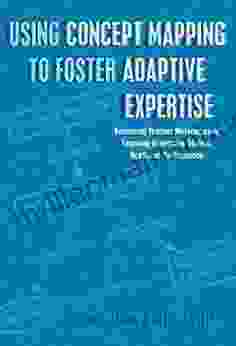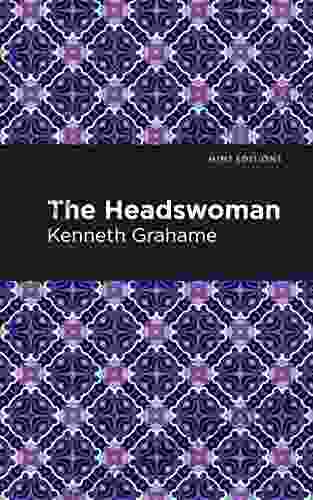Enhancing Teacher Metacognitive Learning To Improve Student Academic

The term "metacognition" refers to the process of thinking about one's own thinking. It involves the ability to monitor, evaluate, and regulate one's cognitive processes. Metacognition plays a crucial role in learning and academic achievement. Students who are metacognitively aware are better able to plan, monitor, and evaluate their learning. They are also more likely to be self-regulated learners who are able to set goals, track their progress, and make adjustments as needed.
5 out of 5
| Language | : | English |
| File size | : | 18689 KB |
| Text-to-Speech | : | Enabled |
| Screen Reader | : | Supported |
| Enhanced typesetting | : | Enabled |
| Word Wise | : | Enabled |
| Print length | : | 274 pages |
In recent years, there has been growing interest in the role of teacher metacognition in student academic achievement. Research has shown that teachers who are metacognitively aware are more effective in the classroom. They are better able to plan and deliver instruction, manage their classrooms, and assess student learning. Additionally, metacognitively aware teachers are more likely to create learning environments that promote student metacognition.
Benefits of Metacognition for Teachers
There are many benefits of metacognition for teachers. These benefits include:
- Improved planning and delivery of instruction: Metacognitively aware teachers are able to better plan and deliver instruction by considering their students' needs and learning styles. They are also more likely to use a variety of teaching strategies and resources to meet the needs of all learners.
- Enhanced classroom management: Metacognitively aware teachers are able to better manage their classrooms by creating a positive and supportive learning environment. They are also more likely to be able to identify and address student behavior problems.
- Improved assessment of student learning: Metacognitively aware teachers are able to better assess student learning by using a variety of assessment strategies. They are also more likely to be able to provide students with feedback that is specific and actionable.
- Increased collaboration with students and parents: Metacognitively aware teachers are able to better collaborate with students and parents by communicating about student learning in a clear and concise way. They are also more likely to be able to involve students and parents in the learning process.
Strategies for Promoting Metacognitive Learning in Teachers
There are a number of strategies that can be used to promote metacognitive learning in teachers. These strategies include:
- Professional development: Professional development opportunities can help teachers to develop their metacognitive skills. These opportunities can include workshops, conferences, and online courses.
- Mentoring: Mentoring can provide teachers with opportunities to learn from more experienced teachers who are metacognitively aware.
- Self-reflection: Self-reflection can help teachers to become more aware of their own thinking processes. Teachers can engage in self-reflection by writing in a journal, talking to colleagues, or observing their own teaching.
- Feedback: Feedback from students and colleagues can help teachers to identify areas where they can improve their metacognitive skills.
- Technology: Technology can be used to support metacognitive learning in teachers. For example, teachers can use online tools to track their students' progress, reflect on their own teaching, and collaborate with colleagues.
Evidence-Based Research
There is a growing body of research that supports the claims made in this article. For example, a study by the National Center for Education Statistics (NCES) found that teachers who are metacognitively aware are more likely to have students who perform better on standardized tests. Another study by the University of California, Berkeley found that teachers who use metacognitive strategies in their teaching are more likely to have students who are self-regulated learners.
The evidence is clear: teacher metacognition is a key factor in student academic achievement. By promoting metacognitive learning in teachers, we can help to improve student outcomes. There are a number of strategies that can be used to promote metacognitive learning in teachers. These strategies include professional development, mentoring, self-reflection, feedback, and technology. By investing in teacher metacognitive learning, we can help to ensure that all students have the opportunity to succeed academically.
5 out of 5
| Language | : | English |
| File size | : | 18689 KB |
| Text-to-Speech | : | Enabled |
| Screen Reader | : | Supported |
| Enhanced typesetting | : | Enabled |
| Word Wise | : | Enabled |
| Print length | : | 274 pages |
Do you want to contribute by writing guest posts on this blog?
Please contact us and send us a resume of previous articles that you have written.
 Top Book
Top Book Novel
Novel Fiction
Fiction Nonfiction
Nonfiction Literature
Literature Paperback
Paperback Hardcover
Hardcover E-book
E-book Audiobook
Audiobook Bestseller
Bestseller Classic
Classic Mystery
Mystery Thriller
Thriller Romance
Romance Fantasy
Fantasy Science Fiction
Science Fiction Biography
Biography Memoir
Memoir Autobiography
Autobiography Poetry
Poetry Drama
Drama Historical Fiction
Historical Fiction Self-help
Self-help Young Adult
Young Adult Childrens Books
Childrens Books Graphic Novel
Graphic Novel Anthology
Anthology Series
Series Encyclopedia
Encyclopedia Reference
Reference Guidebook
Guidebook Textbook
Textbook Workbook
Workbook Journal
Journal Diary
Diary Manuscript
Manuscript Folio
Folio Pulp Fiction
Pulp Fiction Short Stories
Short Stories Fairy Tales
Fairy Tales Fables
Fables Mythology
Mythology Philosophy
Philosophy Religion
Religion Spirituality
Spirituality Essays
Essays Critique
Critique Commentary
Commentary Glossary
Glossary Bibliography
Bibliography Index
Index Table of Contents
Table of Contents Preface
Preface Introduction
Introduction Foreword
Foreword Afterword
Afterword Appendices
Appendices Annotations
Annotations Footnotes
Footnotes Epilogue
Epilogue Prologue
Prologue Paul Herzberg
Paul Herzberg David Taransaud
David Taransaud Nicolaj Siggelkow
Nicolaj Siggelkow Bernard Seifert
Bernard Seifert Charlotte Eriksson
Charlotte Eriksson R Stephen Smith
R Stephen Smith Sheri Lynn Marean
Sheri Lynn Marean H W Brands
H W Brands L Christopher Hennessy
L Christopher Hennessy Markus Ray
Markus Ray Harley Ford Hodges
Harley Ford Hodges Darren Lewis
Darren Lewis Chris Harman
Chris Harman Pat Mills
Pat Mills G A Henty
G A Henty Geoff Strong
Geoff Strong Jack Mittler
Jack Mittler Sudha Kuruganti
Sudha Kuruganti Glen Arnold
Glen Arnold Staci Perry
Staci Perry
Light bulbAdvertise smarter! Our strategic ad space ensures maximum exposure. Reserve your spot today!
 Cameron ReedFollow ·2.7k
Cameron ReedFollow ·2.7k Douglas PowellFollow ·6k
Douglas PowellFollow ·6k Aron CoxFollow ·17.4k
Aron CoxFollow ·17.4k Jackson BlairFollow ·15.8k
Jackson BlairFollow ·15.8k Preston SimmonsFollow ·3.1k
Preston SimmonsFollow ·3.1k Hugo CoxFollow ·16.2k
Hugo CoxFollow ·16.2k George Bernard ShawFollow ·8.4k
George Bernard ShawFollow ·8.4k John KeatsFollow ·11.6k
John KeatsFollow ·11.6k

 Caleb Carter
Caleb CarterThe Complete Beagle Dog Beginners Guide: Beagle Facts,...
Beagles are...
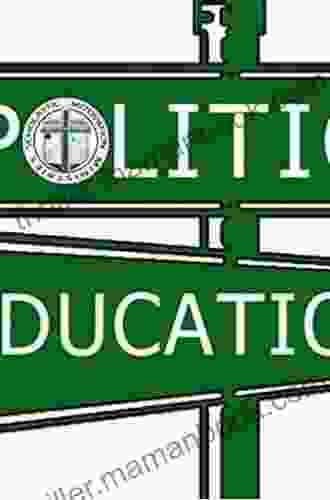
 Gage Hayes
Gage HayesThe Origins and Evolution of No Child Left Behind:...
The No Child Left Behind...

 George Martin
George MartinThe Love Pirates: A Swashbuckling Tale of Love,...
The Love Pirates is a thrilling...
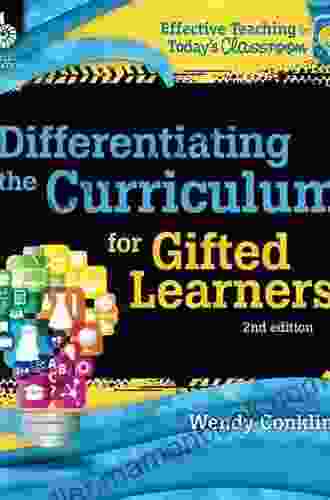
 Nathaniel Hawthorne
Nathaniel HawthorneDifferentiating the Curriculum for Gifted Learners:...
Gifted learners are...
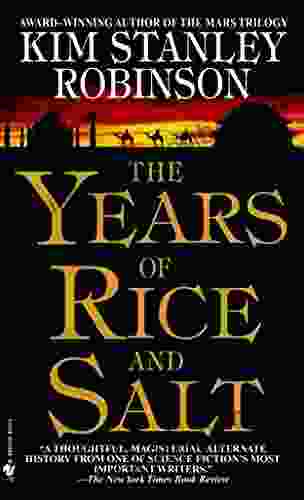
 Carlos Fuentes
Carlos FuentesThe Years of Rice and Salt: A Journey Through a Forgotten...
The Years of Rice and Salt is...
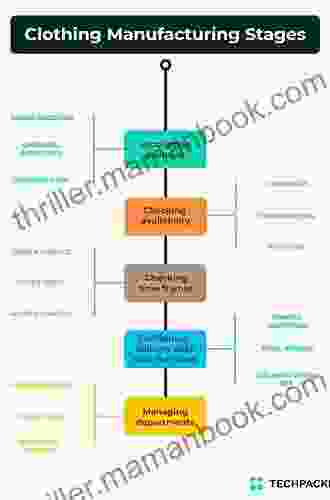
 Herbert Cox
Herbert CoxThe Intricate Design of Clothing Manufacturing Processes:...
The clothing industry is a vast and...
5 out of 5
| Language | : | English |
| File size | : | 18689 KB |
| Text-to-Speech | : | Enabled |
| Screen Reader | : | Supported |
| Enhanced typesetting | : | Enabled |
| Word Wise | : | Enabled |
| Print length | : | 274 pages |


